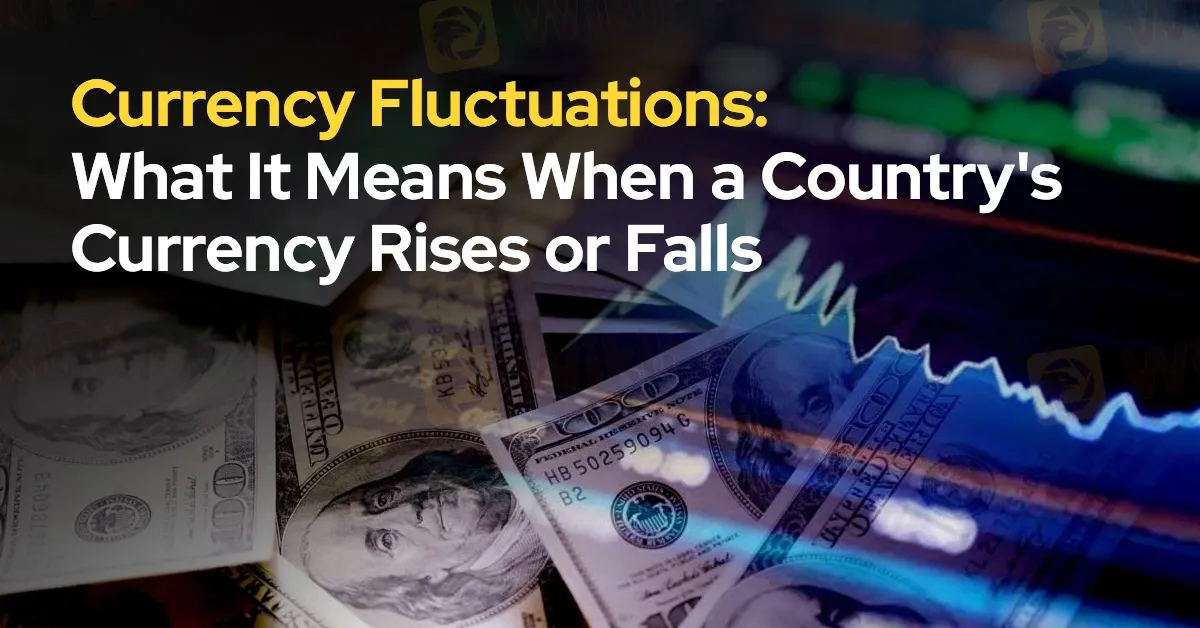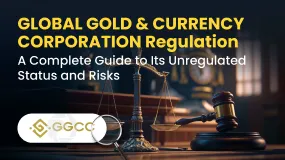Abstract:When a country’s currency appreciates or depreciates in value, it reflects the underlying shifts in its economy and global market dynamics. For forex traders, understanding what drives these fluctuations—and how to strategically prepare for them—can make the difference between profit and loss in an ever-volatile market.

When a countrys currency appreciates or depreciates in value, it reflects the underlying shifts in its economy and global market dynamics. For forex traders, understanding what drives these fluctuations—and how to strategically prepare for them—can make the difference between profit and loss in an ever-volatile market.

A currency's value is largely influenced by the principle of supply and demand. When demand for a currency increases, its value goes up, and when demand declines, the value goes down. However, this broad concept is shaped by a complex set of factors, including economic indicators, political stability, global trade balances, and even market sentiment.
Economic indicators such as inflation rates, interest rates, GDP growth, and employment rates play a fundamental role in currency valuation. For instance, when a country raises its interest rates, foreign investments often flow in, increasing demand for that currency as investors seek higher returns. Conversely, high inflation can reduce a currencys purchasing power, leading to depreciation.
Political stability also strengthens a currency, as investors gravitate towards stable economies to reduce risks. In contrast, political uncertainty or turmoil tends to weaken a currency, as investors might turn to safer alternatives. Central bank policies are especially influential, as moves like quantitative easing or tightening directly affect a currency's value by adjusting the money supply. Trade balance also impacts a currencys worth; a country with a trade surplus generally experiences appreciation, as foreign buyers create demand for its currency. Meanwhile, a trade deficit can often lead to depreciation, as the outflow of currency surpasses inflows.
Market sentiment, a less tangible but powerful force, also plays a role. Speculation and trader psychology drive currency prices, especially in the short term. Positive economic or political news can spark buying, while negative developments might trigger selling, both of which can lead to rapid shifts in value.

For forex traders, currency fluctuations are the basis for profit potential. A rising currency often signals a strengthening economy or favourable economic policies, while a declining currency might indicate underlying issues. By analysing these trends, traders aim to buy low and sell high or short-sell currencies expected to drop in value. For example, if a trader expects U.S. interest rates to rise, strengthening the dollar, they may buy USD/EUR. Conversely, anticipating economic challenges in the U.K. that could weaken the pound may prompt a trader to short GBP/USD, capitalizing on potential depreciation.

Navigating currency volatility effectively requires informed strategies, with economic data being a crucial starting point. Traders should closely monitor economic reports, including employment figures, GDP updates, inflation rates, and central bank announcements, as these releases can lead to sharp price movements. The insight provided by these indicators is essential in spotting potential trading opportunities.
Technical analysis and chart patterns are valuable tools many traders use to identify price trends and reversal signals. Indicators such as moving averages, support and resistance levels, and momentum gauges can aid traders in pinpointing shifts and determining entry and exit points. Additionally, effective risk management remains critical in volatile markets. Traders should implement tools like stop-loss orders and practice cautious position sizing to manage potential losses. Maintaining capital during unpredictable conditions is essential for long-term profitability.
In some cases, hedging strategies can help protect against unfavourable price movements, especially in times of high uncertainty. By holding offsetting positions, traders can reduce their exposure to adverse shifts. Finally, staying informed about geopolitical events and broader market sentiment offers insights into collective trader behaviour, allowing individuals to anticipate market movements and act accordingly.
For forex traders, currency fluctuations present both opportunities and risks. By understanding the economic, political, and psychological factors that drive a currencys rise or fall, traders can prepare themselves to capitalize on market shifts. Through preparedness, diligent analysis, and vigilant risk management, traders are well-positioned to turn the volatility of the forex market into profitable ventures.













